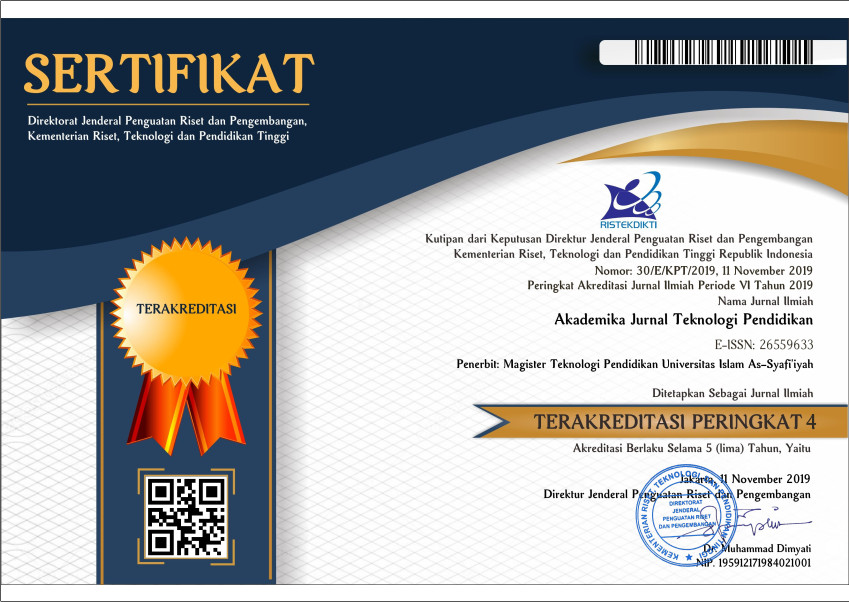EFFECT OF WORK ENVIRONMENT AND ORGANIZATIONAL COMMITMENT ON SALES FORCE PERFORMANCE MEDIATED BY CAREER DEVELOPMENT
Abstract
This study aims to examine and analyze career development as mediator of work environment and organizational commitment on salesforce performance at PT. Astra International Tbk - Daihatsu Sales Operation Wil. DKI 2. This study uses a quantitative approach with structural equation model or SEM through software named PLS (Partial Least Square) method with the smartPLS program. The population of the study is numbered 344 and sampling using non-probability (purposive sampling) in which employee criteria as Salesforce at PT. Astra International Tbk - Daihatsu Sales Operation Wil. DKI 2 (consists of 20 branches), therefore sample obtained is numbered 185 respondents. The model theory used is showing fit to empirical data. The results of study showed that: (1) work environment has no significant effect on salesforce performance, (2) organizational commitment has a positive and significant on salesforce performance, (3) work environment has a positive and significant on development career, (4) organizational commitment has a positive and significant on development career, (5) career development has a positive and significant on salesforce performance, (6) work environment has a positive and significant on salesforce performance with development career as full mediator, (7) and organizational commitment has a positive and significant on salesforce performance with career development as partial mediator.
This work is licensed under a Creative Commons Attribution 4.0 International License.
Authors who publish with this journal agree to the following terms:
- Authors retain copyright and grant the journal right of first publication with the work simultaneously licensed under a Creative Commons Attribution License that allows others to share the work with an acknowledgement of the work's authorship and initial publication in this journal.
- Authors are able to enter into separate, additional contractual arrangements for the non-exclusive distribution of the journal's published version of the work (e.g., post it to an institutional repository or publish it in a book), with an acknowledgement of its initial publication in this journal.
- Authors are permitted and encouraged to post their work online (e.g., in institutional repositories or on their website) prior to and during the submission process, as it can lead to productive exchanges, as well as earlier and greater citation of published work (See The Effect of Open Access).









